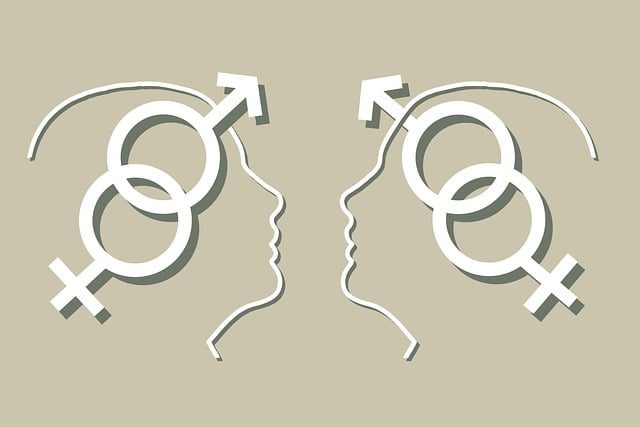Transphobia, a deeply ingrained and often overlooked issue, pervades our society, affecting the lives of countless transgender individuals. In order to combat this insidious prejudice and create a more inclusive and equitable world, it is crucial to understand the many facets of transphobia and how it manifests in our everyday lives. In this blog post, we will delve into the various forms of transphobia, the consequences they bring, and the steps we can take to dismantle these harmful beliefs and practices, including addressing transphobic attitudes.
Table of Contents
Key Takeaways
Recognizing transphobic attitudes and challenging them is essential to create an inclusive environment for transgender individuals.
Transphobia has serious consequences, including physical violence & sexual assault, which must be addressed to protect the mental and physical health of transgender individuals.
Education, advocacy & allyship are key in promoting understanding & inclusion of transgender people in society through legal protections and gender-affirming care.
Recognizing Transphobic Attitudes

Transphobic attitudes can manifest in various ways, some subtle and others more overt. This could range from:
Misgendering someone
Believing in the myth that there are only two genders
Outright discrimination against transgender individuals in various aspects of their daily lives
Recognizing these attitudes becomes the first step towards challenging them and fostering a more inclusive society for transgender people and others with diverse gender identities, including trans identities.
Misgendering and Wrong Pronouns
Misgendering and using wrong pronouns can have a significant impact on transgender individuals. Addressing trans women as “men” or trans men as “women,” or using incorrect pronouns like “he” for trans women and “she” for trans men, constitutes misgendering. Repeated misgendering and wrong pronoun usage can lead to feelings of invisibility, invalidation, and alienation. Respecting a person’s gender identity and using appropriate pronouns is a key aspect of fostering their well-being and creating an inclusive environment.
Sadly, transgender individuals are often denied access to restrooms corresponding to their gender identity, which can cause emotional distress and pose safety risks. Providing access to the appropriate restroom is a critical part of affirming and respecting a person’s gender identity. Denying this right not only sends a harmful message that their identity is not valued but also puts transgender individuals at greater risk of harassment and even physical violence.
The “Only Two Genders” Myth
The belief in only two genders is a transphobic myth that disregards the existence and experiences of non-binary and gender-nonconforming individuals. Historically, various cultures have acknowledged, respected, and incorporated more than two genders, and the concept of only two genders is a relatively new development. Scientific studies on gender identity have also indicated that the notion of only two genders does not capture the full complexity of human experiences and identities. Some key points to consider are:
The belief in only two genders is a transphobic myth
Non-binary and gender-nonconforming individuals exist and their experiences should be acknowledged and respected
Many cultures have recognized and incorporated more than two genders throughout history
The concept of only two genders is a relatively recent development
Scientific studies support the idea that gender is more complex than just two categories
The ‘only two genders’ myth has a considerable impact on non-binary individuals and gender nonconforming people, reinforcing the notion that gender is strictly binary and disregarding their identities. Challenging and disproving this myth is vital to creating a more inclusive and supportive society for all gender identities.
Consequences of Transphobia
The consequences of transphobia are severe and far-reaching, affecting the mental and physical health of transgender individuals. Transphobia can lead to:
Depression
Anxiety
Suicidal ideation
Increased risk of physical violence
Increased risk of sexual assault
Comprehending and dealing with these consequences is paramount for the well-being of transgender individuals, especially within transgender adult communities and for transgender children and transgender youth.
Mental Health Impact
Transphobia is a significant contributing factor to the higher rates of depression among transgender individuals. The hostile and discriminatory environment created by transphobia can lead to feelings of isolation, low self-esteem, and fear. Furthermore, the intersection of transphobia with other forms of oppression, such as systemic racism, exacerbates these mental health challenges.
Chronic stress and anxiety stemming from transphobia have been tied to the onset of anxiety disorders in transgender individuals. Thus, confronting transphobia and offering support becomes essential to mitigate these adverse effects and enhance mental health outcomes for transgender individuals.
Physical Violence and Sexual Assault
Transgender individuals, including transgender women, are significantly more likely than cisgender individuals to experience physical violence and sexual assault. Discrimination and transphobia contribute to a heightened risk of violent victimization, including rape and aggravated assault. Approximately half of transgender people and bisexual women will experience sexual violence in their lifetime.
Transphobic violence is a devastating reality for many transgender individuals, particularly black and minority ethnic trans women who face structural oppression in the form of racism. Mitigating transphobia is a critical step in diminishing the risk of violence against transgender individuals, thereby securing their safety and well-being.
Challenging Transphobic Beliefs in Society
Combating transphobic beliefs in society necessitates a multifaceted approach that includes:
Education
Awareness
Advocacy
Allyship
By raising awareness and increasing understanding of transgender issues and experiences, we can help dismantle transphobia and foster transgender equality, leading to a more inclusive and equitable society.
Education and Awareness
Gaining and disseminating knowledge about transgender issues and experiences is a crucial stride towards challenging transphobia. This can be accomplished through:
Resources and guides on being a good ally to transgender individuals
Outreach and awareness campaigns
Training and workshops on gender identity and transgender issues
Incorporating transgender-inclusive education in schools and universities.
Promoting awareness of transgender issues can have a beneficial effect on societal attitudes and prejudices, helping to confront stereotypes, misunderstandings, and prejudicial attitudes towards transgender people. Greater understanding and empathy can lead to increased tolerance, respect, and inclusion of transgender people in society.
Advocacy and Allyship
Advocacy and allyship involve actively promoting and defending the rights of transgender individuals and actively challenging transphobic beliefs and actions. Being an ally to transgender individuals involves active listening, staying updated with the latest developments in the transgender community, and respecting their self-identified identities and experiences.
Advocacy in the context of transgender rights refers to the efforts and actions taken to support and promote the rights and well-being of transgender individuals. This includes:
Raising awareness
Challenging discrimination and stigma
Advocating for legal protections
Striving for social acceptance and equality for transgender people.
Gender-Affirming Care and Support

Gender-affirming care and support, encompassing a range of medical, surgical, and mental health services, play a pivotal role in the well-being of individuals with a transgender identity by supporting and affirming their gender identity. However, transgender individuals often face barriers in accessing healthcare, which must be addressed in order to ensure their well-being.
Transgender Healthcare Barriers
Transgender people, also known as trans people, may encounter various obstacles in accessing healthcare, such as discrimination, lack of knowledgeable providers, and insurance coverage issues. These obstacles can significantly impede their access to gender-affirming care, a vital component of their mental and physical health, especially for those experiencing gender dysphoria.
Title VII of the Civil Rights Act of 1964 and the Fair Housing Act both provide legal protections for transgender individuals, prohibiting discrimination based on gender identity in employment and housing, respectively. However, much work remains to be done to ensure equal treatment and access to opportunities for transgender individuals in all areas of life.
Importance of Gender-Affirming Care
Gender-affirming care is instrumental in promoting the mental and physical well-being of transgender individuals. Research has consistently demonstrated the beneficial effects of gender-affirming care on the mental and physical health of transgender individuals. It is a critical component of healthcare for transgender individuals and should be advocated for and implemented.
Legal Protections for Transgender Individuals
Legal protections for transgender individuals are necessary to combat discrimination in areas such as employment, housing, and public spaces. Title VII of the Civil Rights Act of 1964, the Fair Housing Act, and various state and local laws provide important protections for transgender individuals against discrimination in these areas.
Employment and Housing Discrimination
Employment and housing discrimination against transgender individuals can have severe consequences, including financial instability and homelessness. Title VII of the Civil Rights Act of 1964 and the Fair Housing Act offer crucial legal protections that ensure equal opportunities and fair treatment for transgender individuals in these spheres.
Transgender Rights in Public Spaces
Securing transgender rights in public spaces like restrooms and sports is critical for their safety, dignity, and societal inclusion. Discrimination in public accommodations is addressed by the majority of state and local laws, but federal nondiscrimination laws do not currently forbid discrimination in public accommodations on the basis of gender identity.
The issue of transgender individuals in sports has significant implications for their rights in public spaces, as denying them the right to participate in sports according to their gender identity would be discriminatory. Ensuring equal rights and safety for transgender individuals in public spaces is contingent on the policies and laws implemented in each jurisdiction.
Learn more, visit Know Your Rights | LGBTQ Rights | ACLU.
Summary
In conclusion, understanding and combating transphobic beliefs is crucial for creating a more inclusive and equitable society. Through education, awareness, advocacy, and allyship, we can challenge transphobia and dismantle the barriers that transgender individuals face in accessing healthcare, employment, housing, and public spaces. By fostering an environment that embraces and supports all gender identities, we can promote a world where everyone, regardless of their gender identity, can thrive.
Frequently Asked Questions
What is transphobia?
Transphobia is an expression of prejudice and discrimination towards transgender persons or transness. It can manifest in many forms, such as hate speech, verbal abuse, and physical assault.
How does transphobia affect the mental health of transgender individuals?
Transphobia has a detrimental impact on the mental health of transgender individuals, leading to increased rates of depression, anxiety, and suicidal ideation.
What legal protections exist for transgender individuals?
Transgender individuals are legally protected by Title VII of the Civil Rights Act of 1964, the Fair Housing Act, and various state and local laws against discrimination based on gender identity.
What barriers do transgender individuals face in accessing healthcare?
Transgender individuals face numerous barriers when attempting to access healthcare, such as discrimination, a lack of knowledgeable healthcare providers, and insurance coverage issues.
How can society challenge transphobic beliefs?
To challenge transphobic beliefs, society must prioritize education, raise awareness, advocate for trans rights, and support allies.










